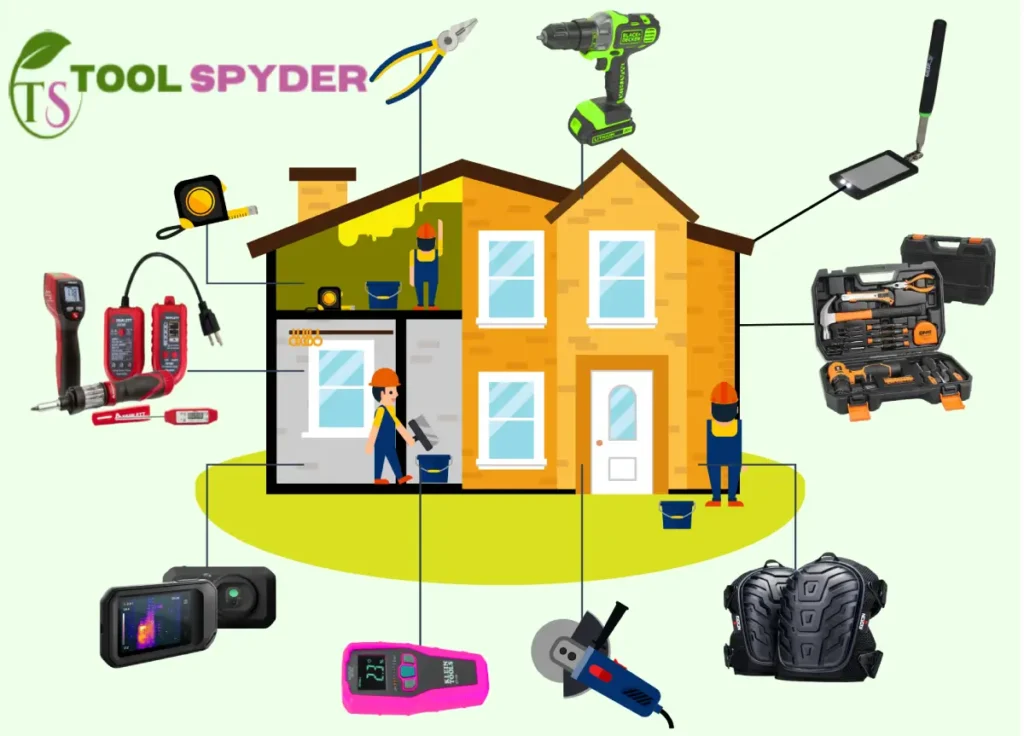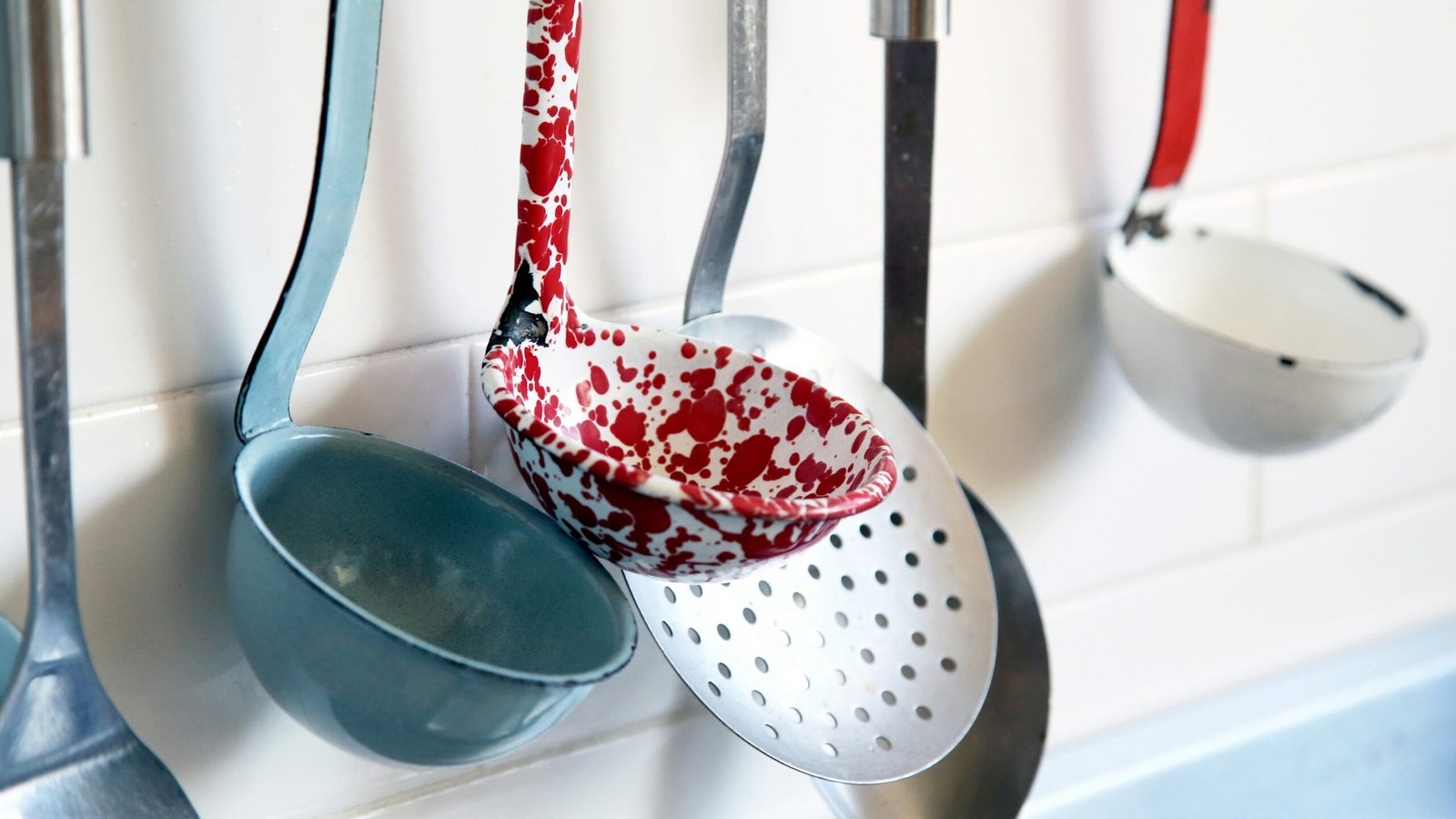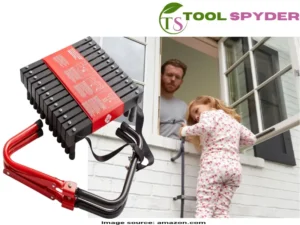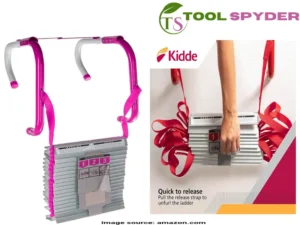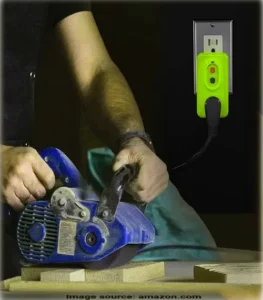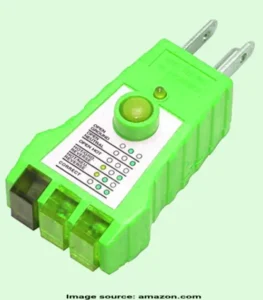Introduction
Investing in the right home inspection tools and equipment is a very difficult task. I faced this problem. After that, I researched so many times about home inspection tools. I have noticed so many things behind it. I will try my best to help you in this regard.
So it is an ideal move that can save you millions in the long run. Whether you’re a home inspector, homeowner, a real estate businessman, or a home contractor, having the right tools at your disposal can help you identify potential problems before they escalate into costly repairs. From moisture meters and thermal imaging cameras to electrical testers and mold detection kits, these tools can disclose hidden hazardous problems that the naked eye can’t prevail.
How can Home Inspection Tool Save You Millions
- THE BEST 6 WAYS FOR PASSING A HOME INSPECTION WITH LOW COST
- HOUSE INSPECTION COST: A HOME INSPECTION CHARGES IN USA
What is Home Inspection Tools ?
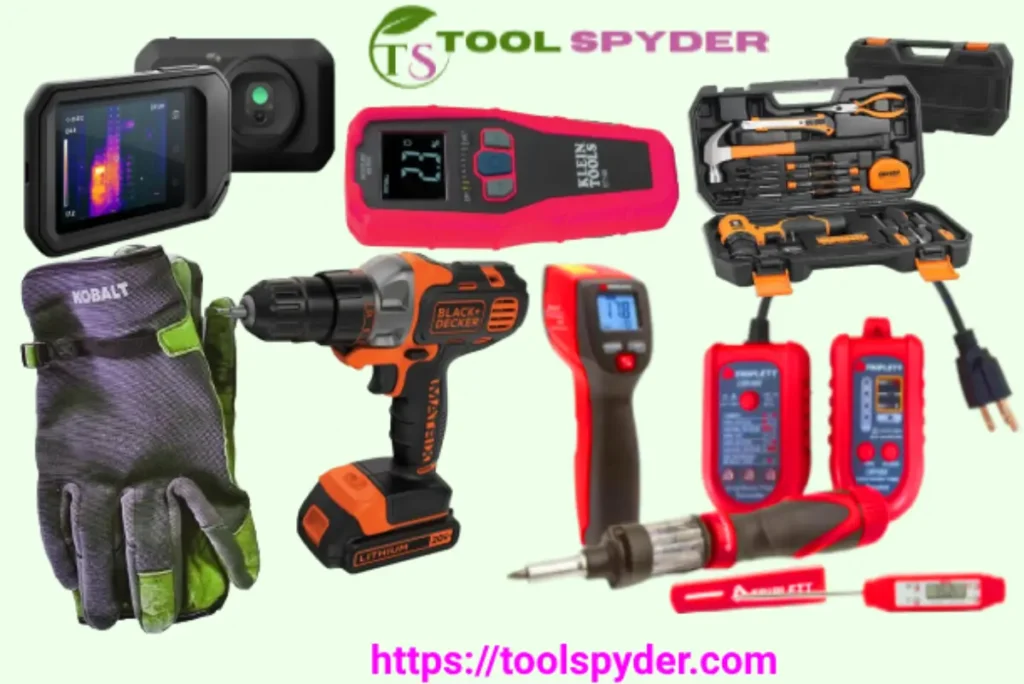
The tools that are used during home inspection are called home inspection tools. There are many so home inspection tools in this industry. But which tools are important that depends on the type of inspection or the home inspector.
General list of home inspection tools or equipment:
- Digital moisture meter: Pin type moisture meter & Pinless moisture meter
- Inspection mirrors
- Natural gas detector for home
- Methane detectors
- Gas leak tester
- Circuit breaker finder
- Circuit analyzer
- AFCI testing device
- Home fire escape ladder
- LED rechargeable flashlight
- sewer camera
- Astro pneumatic wrench set
- Small auto fire extinguisher
- Radio frequency meter
- EMF meter
- pinpointer metal detector
- waterproof metal detector
- dewalt work light
- Drill bit sets for metal
- Digital electronic pool water tester
- Portable air compressor
- electric-air-compressor
- fire extinguisher with cabinet
- Inspection mirror with magnetic base
- Knee pads for construction
- Underground wire locator
- Salt water test kits for pools
- Survival pen flashlight
- Small flashlight
- Radon detector for home inspectors
- Radon carbon monoxide detector
- Surge protectors for whole home
- Underground water leak detector
- Complete mechanics tool set with box
- cordless dremel rotary tools kit
- crescent wrench multi tool set
- offset pipe wrench
- aluminum pipe wrenches
Why Home Inspections are Vital:
Before we delve into the world of home inspection tool, let’s first understand why home inspections are vital. A home inspection is a thorough examination of a property’s condition conducted by a qualified professional to identify any existing or potential issues. On the other hand, when buying or selling a property, a proper home inspection is vital to ensure that it meets safety standards, complies with building codes, and is free from significant defects. During a home inspection, various aspects of the property are assessed, including the foundation, structure, roofing, plumbing, electrical systems, HVAC (heating, ventilation, and air conditioning), insulation, and more. Identifying problems early on can save you from costly repairs and allow you to negotiate repairs or price adjustments with the seller.
Expert home inspector recommendation list for beginners:
- A telescoping ladder
- 28’ extension able ladder (go bigger if you work with a partner)
- a high quality flashlight, don’t be cheap and a backup flashlight for when you forget to recharge the good flashlight.
- a Klein 124 in 1screw driver (or whatever you choose)
- A standard pin less moisture meter. You can look into combination moisture meters as well.
- A good Thermal imaging camera.
- An infrared thermometer
- a knife/razor knife
- Non-contact voltage detector
- 3 light outlet tester
- boot covers for when you step in dog shit in those too
- tool pouch to carry most this bull shit
- your cell phone
- a tool bag to carry a lot of the other things
- radon equipment (depending on your area)
- mold equipment
- sewer scope + related equipment
- tripods
- another screw driver because you left your good one somewhere
- marketing material (flyers, business cards etc.)
- pens for writing note.
How the Right Home Inspection Tools Can Save You Money
For professionals who conduct frequent and detailed home inspections, investing in advanced tools can significantly improve the quality and efficiency of their work. Investing in the right inspection tools can reduce high costs in the future. Here’s how:
1. Early Issue Detection:
Using specialized tools, you can find issues in their early stages. This helps you address them adequately, preventing them from dangerous and costly repairs.
2. Negotiation Power:
When buying or selling a property, accurate and detailed inspection reports can give you an advantage during negotiations. Revealing hidden issues allows you to make necessary repairs or price adjustments, saving you millions of dollars.
3. Preventive Maintenance:
With the right tools, you can identify areas that require preventive maintenance, such as roof inspections or HVAC system servicing. By addressing these maintenance needs promptly, you can prolong the lifespan of your property’s components and avoid costly replacements. 4. Insurance Premiums: Some insurance providers offer discounts for properties undergoing thorough inspections. Investing in home inspection equipment and conducting regular inspections can reduce insurance premiums. The cost of high-quality inspection tools may seem significant initially, but the long-term savings they can provide far outweigh the initial investment.
The Essential List for Home Inspection Equipment
Experts trust a range of specialized tools to conduct a comprehensive home inspection. If you’re new to home inspections, starting with the essential tools that will help you conduct thorough assessments is paramount. Here are some of the most common ones used in the industry and also must-have tools for beginners:
1. Digital Moisture Meter:
Digital moisture meters provide precise moisture measurements, allowing you to identify hidden water damage, water intrusion, leaks, or potential mold issues accurately.
2. Thermal Imaging Camera:
A high-quality thermal imaging camera can detect temperature variations and identify hidden issues such as insulation gaps, electrical problems, or plumbing leaks.
3. Electrical Testers:
These tools help assess the safety and functionality of electrical systems, detecting power problems.
4. Electrical Circuit Analyzer:
An electrical circuit analyzer helps diagnose electrical problems, such as faulty wiring, overloaded circuits, or improper grounding, providing valuable insights into the safety and functionality of electrical systems.
5. Mold Detection Kits:
Mold can cause severe health and structural damage. Mold detection kits help identify the presence of mold spores and determine the type and concentration of mold in an area.
6. Radon Test Kits:
Radon is a radioactive gas that can be fixed in homes and poses health risks. Radon test kits measure the levels of radon gas to ensure a safe living environment.
7. Gas Leak Detectors:
These tools detect the presence of gas leaks, ensuring the safety of occupants and preventing potential fire hazards.
8. Flashlight:
A powerful flashlight is essential to inspect dark and hard-to-reach areas, such as crawlspaces or attics.
9. Screwdriver Set:
A set of screwdrivers in various sizes will come in handy when removing covers or accessing electrical panels.
10. Tape Measure:
Accurate measurements are crucial during inspections. A tape measure will help you assess room dimensions, window sizes, and other essential details.
11. GFCI Tester:
Ground Fault Circuit Interrupters (GFCIs) are crucial for electrical safety. A GFCI tester will help you ensure that these devices are functioning correctly.
12. Ladder:
A sturdy ladder is essential for inspecting roofs, gutters, and other elevated areas. These essential tools will enable you to conduct initial inspections and identify any issues. As you gain experience and expand your expertise, you can invest in more advanced tools later to enhance your inspections.
13. Sewer Inspection Camera:
A sewer inspection camera helps you inspect the condition of sewer lines and find any blockages or damage. These advanced tools provide professionals with more detailed insights into the condition of a property, allowing for thorough assessments and accurate reporting.
Benefits of Home inspection Accessories:
Investing in the proper home inspection accessories offers numerous benefits, whether you’re a homeowner, a real estate investor, or a contractor. Here are some of the advantages:
1. Cost Savings:
By identifying issues quickly, you can address them before they escalate into costly repairs. Investing in home inspection accessories allows you to catch problems at their initial stages, potentially saving you thousands of dollars in the long run.
2. Accurate Assessments:
Home inspection tools provide objective data and measurements, allowing you to make informed decisions based on facts rather than assumptions. This accuracy is crucial, especially when negotiating repairs or determining the value of a property.
3. Enhanced Safety:
Home inspection tools help find potential safety hazards, such as faulty electrical systems or gas leaks, ensuring the well-being of occupants and preventing accidents.
4. Improved Negotiation Power:
If you’re buying and selling properties, having the right tools can give you an edge during negotiations. Uncovering hidden issues allows you to negotiate repairs or price adjustments, maximizing your return on investment.
5. Peace of Mind:
Knowing that your property has been inspected thoroughly and is in good condition provides peace of mind. This peace of mind is invaluable whether you’re a homeowner or a real estate investor. Investing in the right home inspection accessories is a wise decision to save your time and money in the long run. Whether you’re a beginner or a seasoned professional, having the necessary tools is essential to conduct accurate inspections and ensure your property’s safety and structural integrity.
10 Tips for How to Choose the Right Home Inspection Tools
Finding key factors is necessary to confirm that you’re making the right choices when selecting home inspection tools. Here are some tips to help you choose the right tools for your needs. Home inspection equipment can be purchased from various online and offline sources. Here are some options to consider:
1. Research:
Before purchasing any tools, conduct thorough research to understand the types of tools available, their features, and their suitability for different inspection needs.
2. Quality:
Invest in high-quality tools from reputable manufacturers. Quality tools provide accurate results and last longer, ensuring your investment is worthwhile.
3. User-Friendliness:
Consider the tools’ ease of use and portability. Opt for tools that are user-friendly, lightweight, and easy to carry around during inspections.
4. Reviews and Recommendations:
Read customer reviews and seek recommendations from professionals in the industry. Real-world experiences can supply valuable insights into the effectiveness and reliability of different inspection tools.
5. Training and Support:
Ensure that training materials and support are available for your chosen tools. Proper training will help you maximize the potential of the tools and ensure accurate usage.
6. Specialized Retailers:
Many retailers specialize in home inspection tools and equipment. Visit their physical stores or browse their online catalogs to explore options.
7. Online Marketplaces:
Websites like Amazon, eBay, and Home Depot offer many home inspection tools. Follow product descriptions and consumer reviews and compare prices to make informed decisions.
8. Manufacturer Websites:
Check the websites of reputable manufacturers to explore their product offerings directly. Manufacturer websites often provide detailed information about the tools, specifications, and customer support.
9. Industry Conferences and Expos:
Attend industry conferences and expos where you can directly interact with tool manufacturers and suppliers. These events offer exclusive discounts and allow you to see and test the tools before purchasing. Consider your budget, the specific tools you need, and the seller’s reliability when deciding where to buy your inspection tools.
10. Affiliate website:
An affiliate blog website is a place where blogger research different angle of a product. They try to find the actual thing of a product. They try to provide the best information for their reader. In these website you can find interesting thing such as same product list, price, features, comparison among different companies product and so on.
Here are some maintenance tips for home inspection tools
Investing in the right inspection tools for peace of mind and savings once you’ve invested in the right home inspection tools, it’s crucial to properly maintain and take care of them to protect their performance, longevity, and effectiveness.
1. Regular Cleaning:
Clean your tools after each use to remove dirt, debris, and residue. Follow the manufacturer’s guidelines for cleaning and use appropriate cleaning agents.
2. Calibration:
Some tools, such as moisture meters or gas detectors, may require periodic calibration to ensure accurate measurements. Check the manufacturer’s recommendations and calibration guidelines.
3. Storage:
Store your tools in a perfect environment to protect damage from moisture or high temperature. Use protective cases or toolboxes to keep them organized and protected.
4. Battery Maintenance:
For tools that require batteries, regularly recharge and replace the batteries as needed. Buy an extra battery on hand to reduce interruptions during inspections.
5. Professional Servicing:
Some tools may require professional servicing or calibration. Follow the manufacturer’s recommendations and have your tools serviced by authorized technicians when necessary. By correctly maintaining your home inspection tools, you can ensure their reliability and accuracy, allowing you to conduct thorough inspections for years.
Conclusion:
By investing in essential tools, you can confidently assess the condition of a property and make informed decisions. Accurate and thorough inspections can save you money on repairs and provide peace of mind, knowing that the property is in good shape. Additionally, if you’re buying and selling properties, having the right tools can help you negotiate better deals and maximize your return on investment. Invest in the right home inspection tools to lead one footstep ahead in the real estate business. Take control of your property inspections, ensure your home’s safety and structural integrity, and save yourself from costly surprises down the line.

